|
What would you do? Imagine your neighbour Heinrich Boll had left you a spare key and instruction to water the house plants while he boarded an aeroplane to collect a Nobel prize. Would you steal inspiration from the draft in his typewriter? Or Max Opuls had entrusted you, his dear friend, to retrieve a roll of film from his house; the one the censors didn't see in La Ronde. Would you leer at the said negative being held up to a bright light source? Kathe Kollwitz had to nip out to buy some milk and bread. Mischievous thought of adding a smiley face of ink to the desolate image in the printing press? The aforesaid fantasies were inspired after listening to an interview Holgar Czukay gave in the early 1990s on the Radio 3 programme, Mixing It. He recounted how as a student of Karlheinz Stockhausen in 1968, he sweet talked the secretary and gained access to Herr Aladdin's electronic cave. Holgar was able to record his debut album, Canaxis 5, with the studios impressive tape recorders looping together his interest in Musique Concrete and ethnographic folk recordings. Not all studios live up to their profession. In point of fact, given the relative poverty of artists, they invariably have to beg a shed, borrow a broom cupboard or steal a loft. I have only had one bonafide studio. This was once a 1960s council flat (bedroom, living room and a kitchen) and came with the responsibility to practice community art. An author might build a studio around the typewriter on an heir loomed desk or a poet might dream on a hammock in the garden. Maybe virtual studios will one day be the norm for web based artists. The creation of an avatar, perhaps even adopting the identity of the Germanic artists I have already listed. Expanding on this chain of thought -what about that elusive key to the artist's mind?
Script for This-That by Jacob Barua. Printed on continuous feed paper, Warwick University science block.
I am navigating back to 1989 and the University of Warwick. My fellow Film and Literature student, Jacob Barua, has handed me a film script and declared emphatically: you are the only person in the universe who can play this! I hesitated. Had never acted before. And then there was the troubled central character in the drama who seemed all too recognisable; forever on the edge of everything, nothing, relationships, art, politics. This begged the following question: Jacob are you taking the piss out of me or yourself? For a short period of time we seemed to swap identities. Jacob’s intense cinematic vision became one with my suited and booted persona. Jacob was going to use this short film to catapult him into the prestigious Lodz film school. But it was no plain sailing. No film production on this dramatic scale had been undertaken at the university where theory ruled the day. It meant sniffing out equipment and resources. After two weeks of filming, a mere two days were spend in the edit suite, using equipment for the very first time. I recall a few expletives. We had set the date of screening, one day after the final day of editing. A key animation sequence shot on 8 mm film only arrived on the day of the screening and had to be added post-haste, post end-credits. Thankfully this has now been re-edited into its proper place in the dreaming body of the film. We finally have the keys to the digital edit suite. It's only now after 26 years and working together again on restoring the fading VHS tapes, that we’ve got a new grasp on the importance of this film for us. Let me leave the final words to Jacob Baura who was recently interviewed about his Warwick experience. What on heaven or hell was he thinking about when he made This-That?
Jacob Barua:
"The reason I wanted to become a filmmaker, did not have that much to do with film per se. I had always been enthralled by Art itself in all it's aspects. I had been a poet, a musician, a painter, photographer, amateur actor, but probably loved literature most of all. Somewhat like a brat with his hand in a jar full of goodies, I did not want to let go of any of the Arts and decided that there was was only one vessel that encompassed all of them. The only way, in which I did not have to discard any, but instead fuse them, was through the glowing medium of film. I arrived in Warwick...by mistake. One of my obsessions when it comes to the written word is History. Right until today I often wonder whether I am a self made historian expressing myself and researching through film. Warwick conjured in my mind the mystery and glory of medieval times. I was convinced that the University of Warwick was located somewhere within the town of Warwick. In those pre-internet days, a major source of information were brochures. And the university's were filled with images of Warwick Castle and the old cobble stone streets. That was enough for me to decide, given that it was simultaneously the only university offering such a broad course encompassing foremost literature and then film. I got off the train in the quaint railway station only to be horrifyingly informed that the university was far away in some fields between Coventry, Leamington Spa and Kenilworth! I found the course at the university to be exhilirating in it's scope - exactly tailored to my needs. Great lecturers and given the small size of our department, an opportunity to bond with colleagues. The university also happened to probably have the largest independent Art Centre outside London, at the time. There was everything ranging from a philharmonic orchestra to to a cinema with plush seats and a sterling screen, to one of the best equipped professional theaters anywhere in England. Here I was active as a member of the Warwick Drama Society, taking on delicious roles for the duration of my studies. Besides, the university was a beehive of political activity, of all manner of shades. Of course I was aghast that the most prominent ones were for naive fellow travellers of all manner of totalitarian off shots. However the jewel of this mini-city was a massive library, with a salivating wealth of books that was beyond belief. This-That was the result of a deep inner need to encompass my entire experience as a student who had lived in different countries, cultural and political systems. At the same time I set to creating a time capsule to be sent into the future. All Myths were after all created by somebody, even if that was thousands of years back - so why not make one too, there and then, to be flung into an unfathomable distance? My inspiration for the main character was essential to creating a core, and this was based, at least in terms of the visuals on a readily available 'blueprint'. For I used Warwick's most enigmatic and unique real life student - Constantine Gras. He did not fit into any preconception - as he neither had the persona of a typical student, nor even one from any 'civilian' from our contemporary milieu. Here was Someone who seemed to have been historically misplaced, from a 'wrong' age. Like a potter I used him as my clay, to impose onto him a narrative, which I knew would jar when combined with his persona. So here was a man creating himself i.e. Constantine, whom in turn I was creating further. Layers of creation. One of the overarching themes is the struggle that each human has to undertake to find a space of comfort, to be able to be oneself, while struggling against the dominant societal forces. By comfort I do not at all refer to a personal one, but that of the Other. For the most crucial single question ever spoken for me, which forever thunders across all ages is; "Am I my brother's keeper?" We live in a world circumscribed by political correctness. The moment you challenge the narrative of the day, you are deemed fit for condemnation and rejection. In the case of the film, the character not only isn't ascribing to Modernity and the race to keep up with fashions both external and internal, but occupies a realm that defies the obligatory 'standards'. He is still both a reflection of the Ancient, Romantic and Future ages. Whether we like it or not from the beginnings of History, politics impinge on almost everything in life. That is why the culmination of the film is congealed within the incongruous figure of a young pyjama clad student who dares to take on the Rulers of the World. The selfish manipulators - the Daeduluses vs the selfless dreamers - the Icuruses. If I were to try to draw a circle; Sleep - Pyjama - Dream - the Impossible - Courage - Death - Eternity - Sleep.
The reception of the film, I will admit, was heart breaking. An outright regurgitating by the audience. Particularly so - when not even our lecturers or collegues could grasp or extract any meaning out of it. But this should have been expected, as it was intentionally put together in such a way as to defy conventional modes of film-making. And again, it was indeed a film made for Another age. But which one? Time will still tell.
I have no regrets about the film as it was then, and in it's curent slightly re-edited form. It turned out prescient. You are Alone among people. To be fulfilled you have to metaphorically fly, even if demise is the price to be paid. There is no escaping Newton's and other more serious Laws. But just like there was no relevant message in the film for the audience at the time, there similarly isn't any for those today. There are plenty of other better sources, dear audience member, if you are in need of a message. This is not a cerebral feast but mainly a sensory experience. Once I got there, one of the most satisfying experiences at the Lodz Film School was when all students were herded into a cinema, and made to watch the film by Piotr Wojciechowski; he was a Filmmaker, Scriptwriter, Catholic Philosopher but most of all a living legend as a novel writer ("Skull within a skull", "Is it worth to have a Soul" and others). He immediately took to the film. In his laudatory lecture after the film, he said he felt it had the feel of T.S. Elliot's " The Waste Land". He was the first ever viewer to fully comprehend the ambitions of this film. At the Lodz Film School I carried on with the 'tradition' of making This-Thatian films. With no pretence at all. Poland's greatest ever fimmaker, and it's Chancellor Wojciech Has, would always chide other lecturers for being baffled by my films - telling them that they were wrong to search for conventional meanings in my short films. For him they were "Intricate riddles" I don't really have any wise tips for aspiring filmmakers. Rather warnings, in that it is going to be a lonely, cruel, and ungrateful journey, except for the very, very lucky few. Well, take heart - at least there's going to be one worthwhile viewer of your creation - Yourself. Having been trained on 35mm makes a filmmaker by far more disciplined and honed to the workings of a film. The Digital Age has its own advantages. But the downsides are greater. More self indulgence and turning an important medium of Art into a toy. I have been a gardener for a long time now. There's at least one massive film within me waiting to happen. Then I intend to go back to my gardening. It's this and that, after all." If you want to experience This-That, the film is screening on: 10th September 2016 around 7.30pm Muse Gallery, 269 Portobello Road, W11, London Portobello Film Festival Full venue and programme details. This-That Trailer from Constantine Gras on Vimeo. It is with great sadness that I have just received news of the recent passing away of Victor F Perkins. He co-founded the film department at Warwick in 1978 and made a decisive contribution to the acceptance of film as an art form worthy of deep study. I have fond memories of him hunched over the Steenbeck undertaking a close textual analysis of In A Lonely Place with 2-3 students; a more kinetic Victor was found over at the Student Union playing his favourite pinball machine; delivering those impassioned lectures where he poured his intelligence into the vessel of a film; seeing so much nuance in terms of decor and edit, so much so, that I seem to recall, at the end of one lecture, Jacob asked: is it really possible that the film maker meant all this? Victor bough a copy of This-That in 1989 for the university archive. It was always a pleasure to meet up with him over the decades since I graduated. Alas he missed the screening of the remastered film at the university in March 2016, but I was touched when he specially came in to see me and we had a good chin wag about life: how he was adjusting after a recent stroke, his desire to learn the German language, his concern about the corporate development of education and his cluttered honorary office in the department which he really should tidy up. I told him that we had dedicated the film to our old lecturers who had inspired the young to fly. Victor had a rueful smile.
1 Comment
|
Categories
All
Archives
May 2024
|
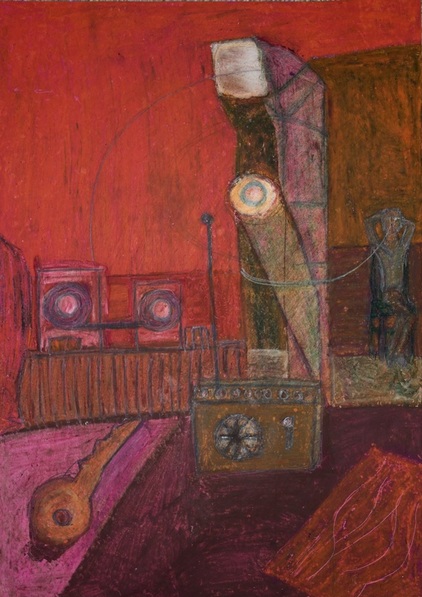
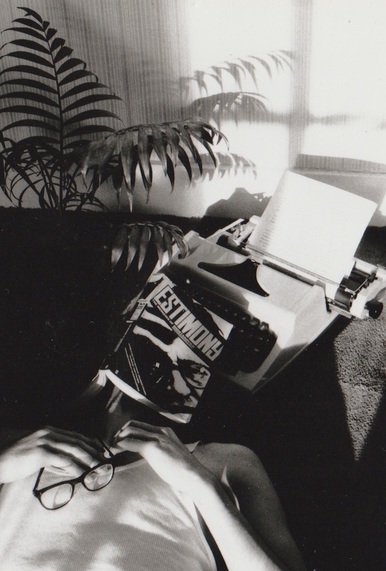
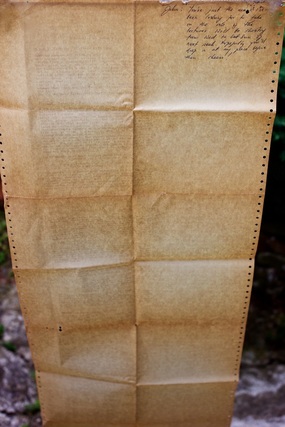
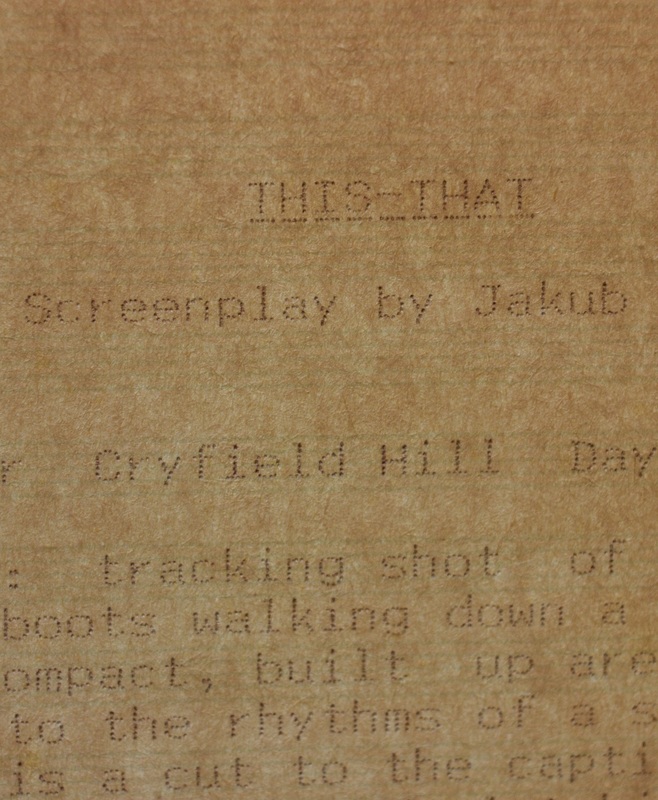

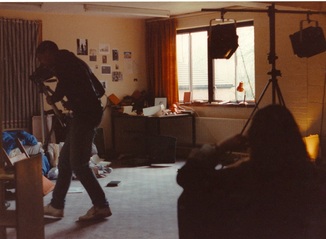
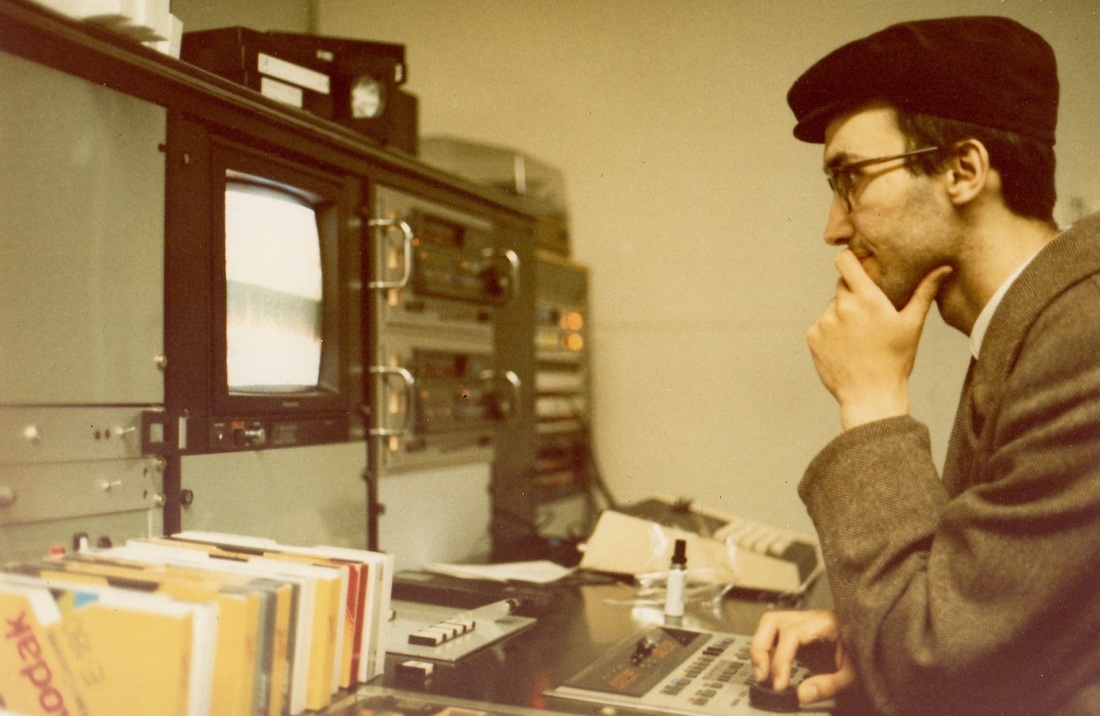
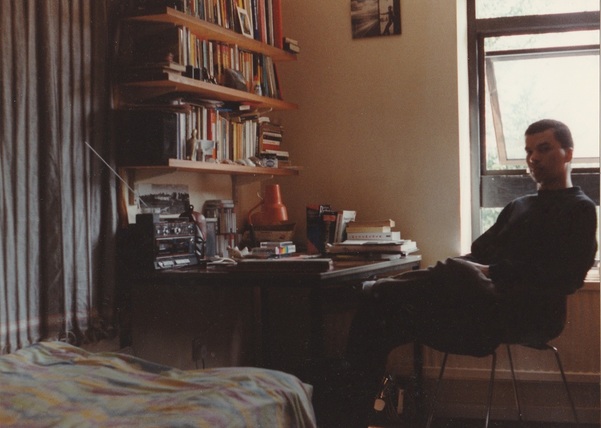
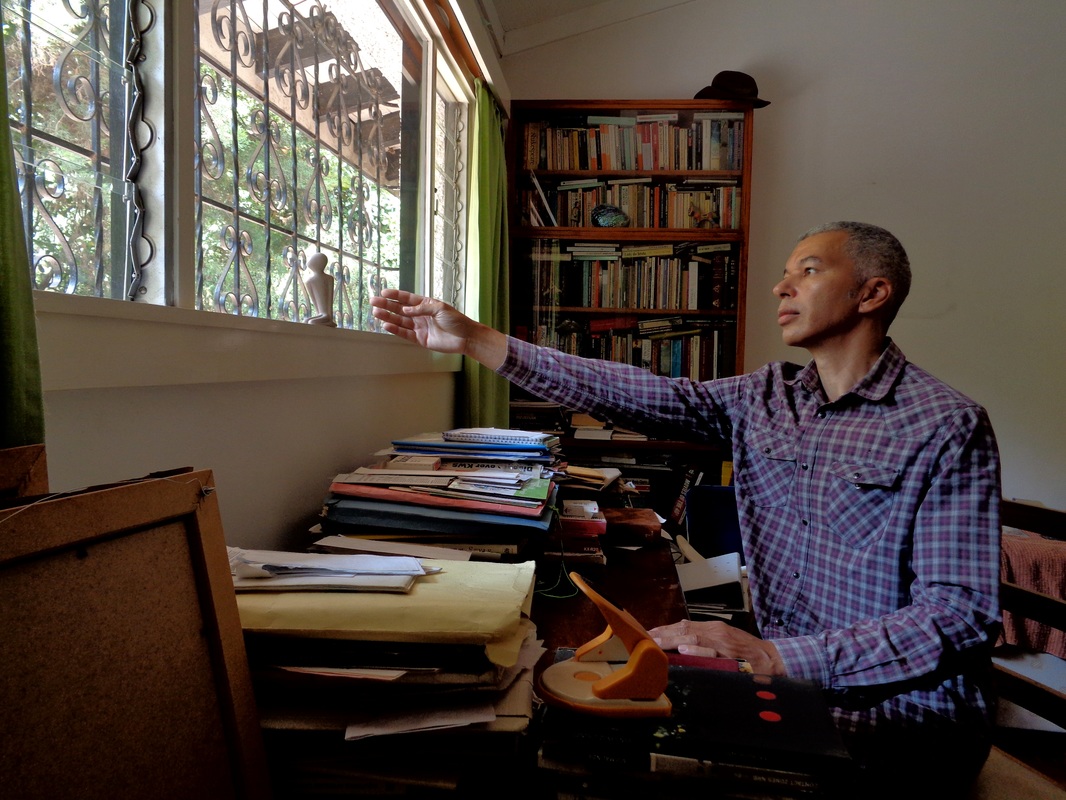
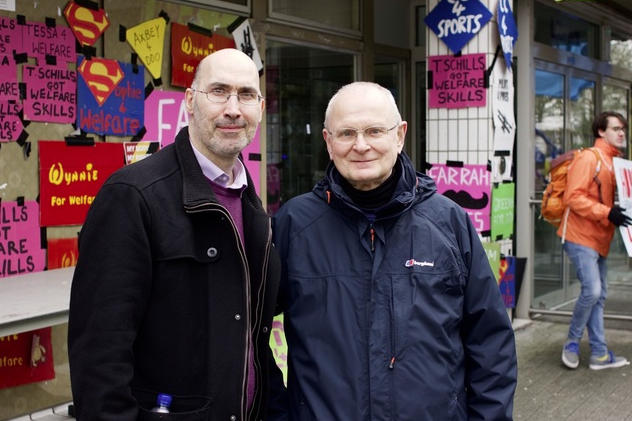
 RSS Feed
RSS Feed
